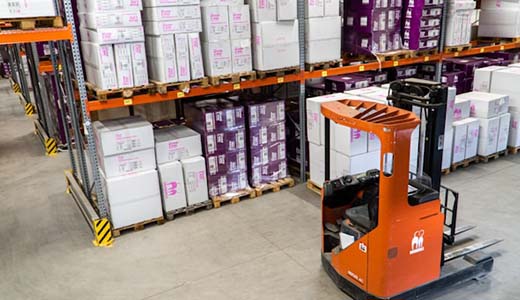What is software for warehouse inventory management?
Software for warehouse inventory management helps businesses track and control their inventory levels, manage stock movements, and optimize storage space. It facilitates real-time data on stock availability, automates order processing, and integrates with other systems like ERP and sales platforms. Key features often include barcode scanning, reporting, demand forecasting, and alerts for low stock levels. This software improves efficiency, reduces human error, and enhances decision-making, ultimately leading to better inventory accuracy and reduced operational costs. Examples include Fishbowl, Cin7, and WMS solutions like SAP Extended Warehouse Management.
Applications of software for warehouse inventory management?
Warehouse inventory management software streamlines operations by tracking stock levels, automating order processing, and optimizing storage space. Key applications include real-time inventory monitoring, barcode scanning for accurate stock counts, demand forecasting to prevent overstocking or stockouts, and integration with e-commerce platforms for seamless order fulfillment. Additionally, these systems facilitate inventory audits, generate reports for data-driven decision-making, and enhance supply chain visibility, ultimately improving efficiency and reducing operational costs.
Different types of software for warehouse inventory management?
Warehouse inventory management software includes various types such as:
- Barcode Scanning Systems: Use barcodes for tracking items.
- Inventory Management Software: Tracks stock levels and sales.
- Warehouse Management Systems (WMS): Comprehensive solutions for managing warehouse operations.
- Enterprise Resource Planning (ERP) Systems: Integrate inventory management with other business functions.
- Cloud-based Inventory Software: Accessible anywhere, offering real-time updates.
- Mobile Inventory Apps: Allow tracking via smartphones or tablets.
- Third-party Logistics (3PL) Software: Manages outsourced warehousing and logistics.
Each type caters to specific warehouse needs and operational complexities.
Technology used for software for warehouse inventory management?
Software for warehouse inventory management typically uses technologies such as barcode scanning, RFID (Radio-Frequency Identification), cloud computing, and machine learning. Barcode and RFID technologies facilitate real-time tracking of inventory items. Cloud computing enables accessible, scalable data storage and management, while machine learning can optimize inventory forecasting and demand planning. Additionally, integration with ERP (Enterprise Resource Planning) systems and mobile applications enhances efficiency and accuracy in inventory tracking and management processes.






